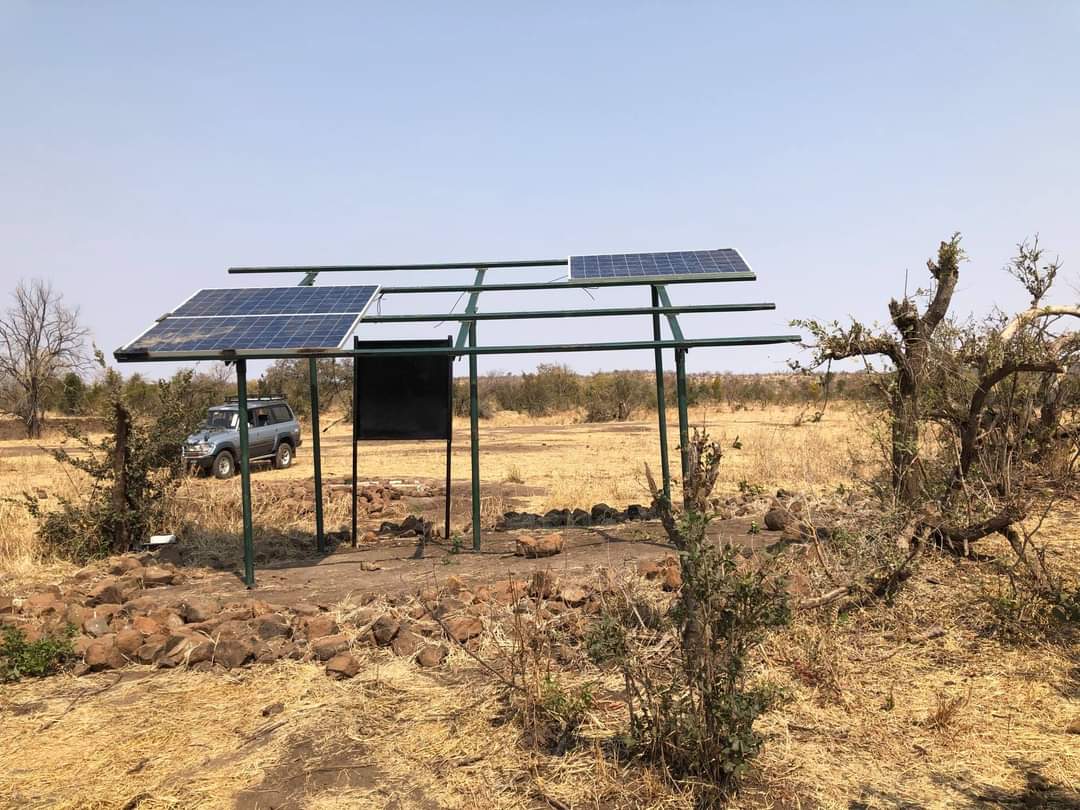Cross-border thieves target Zimbabwe’s game reserves
Solar panels and pumps among items stolen from three reserves across the country

Your support helps us to tell the story
From reproductive rights to climate change to Big Tech, The Independent is on the ground when the story is developing. Whether it's investigating the financials of Elon Musk's pro-Trump PAC or producing our latest documentary, 'The A Word', which shines a light on the American women fighting for reproductive rights, we know how important it is to parse out the facts from the messaging.
At such a critical moment in US history, we need reporters on the ground. Your donation allows us to keep sending journalists to speak to both sides of the story.
The Independent is trusted by Americans across the entire political spectrum. And unlike many other quality news outlets, we choose not to lock Americans out of our reporting and analysis with paywalls. We believe quality journalism should be available to everyone, paid for by those who can afford it.
Your support makes all the difference.By Nokuthaba Dlamini for The Standard
Cross border thieves are targeting water infrastructure such as solar panels and pumps at boreholes in three game reserves in Zimbabwe’s Matabeleland North province, pegging back efforts by conservationists to save wild animals from effects of frequent droughts in the region.
Several solar panels have been stolen from boreholes dotted around Hwange National Park, Kazuma Pan National Park and the Zambezi National Park by suspected thieves from neighbouring Zambia.
Trevor Lane, whose organisation, Bhejane Trust, has been leading in the mobilisation of funds to drill boreholes and install solar panels to power the pumps at the three game parks, said the theft of solar panels intensified during Covid-19 lockdowns.
“It is very disheartening and distressing to drive up to a solar panel array and see it has been vandalised and panels missing,” Lane said.
“And just when you think you have everything under control, there is a very determined gang of Zambian thieves armed with crowbars and hacksaws, who have been raiding and stealing panels and pumps along the upper Zambezi region, including on the Chamabonda Vlei.
“They use a combination of cutting with the hacksaws and brute force with the crowbars to break the frames holding the panels.”
At one watering hole in the Zambezi National Park, thieves damaged four solar panels while trying to remove them.
They also tried to steal a pump at the site.
“They then hit Chamabonda two and again left empty handed, completely cutting up the lower frame but breaking up the panels in trying to get them out,” Lane said.
“Such trends have been playing out in our parks and we fear that during summer from August to October our elephants in particular are going to struggle more because these thieves seem not to have any regard for them.
“The more they vandalise these solar systems on a daily basis, the less we are going to be able to supply water to these elephants which rely on these boreholes and that’s disappointing.”
The Bhejani Trust director said Zambian authorities do not cooperate when they try to investigate the rampant thefts.
“We know the villages the thieves come from, we have some names, and you can guarantee all the villagers in Zambia along the river frontage know what is going on,” Lane said.
“The Zambians consistently fail to cooperate on issues of theft and poaching along the Zambezi and in Hwange.
“We have local poachers as well targeting our wildlife solar panels.
“We report every incident with police on both sides, but there has not been any arrest and prosecution yet.”
The value of stolen solar panels and pumps has been put at US$20,000 (£16,600). Bhejane Trust runs 46 solar powered boreholes, two on windmills and one electric pump at the three game reserves.
On days when there are no interruptions, the organisation pumps close to a million litres of water a day for a target population of 20,000 elephants.
Zimbabwe Parks and Wildlife Management Authority spokesperson Tinashe Farawo said water shortages in game reserves were fuelling human-wildlife conflicts.
In 2019, 200 elephants died at the Hwange National Park due to water shortages as a result of a severe drought.
“We have lost too many people from animals such as elephants, which stray from parks into the communities in search of water and food,” Farawo said.
“So with such thefts we will find ourselves with an increased number of fatalities and destruction of infrastructure and these are issues that need to be addressed.
“We will continue putting our rangers on the ground to monitor such illegal activities.”
Droughts have become frequent in Zimbabwe due to climate change and Matabeleland North is one of the driest regions in the country.
This article is reproduced here as part of the African Conservation Journalism Programme, funded in Angola, Botswana, Mozambique, and Zimbabwe by USAID’s VukaNow: Activity. Implemented by the international conservation organization Space for Giants, it aims to expand the reach of conservation and environmental journalism in Africa, and bring more African voices into the international conservation debate.
Read the original story here.
Join our commenting forum
Join thought-provoking conversations, follow other Independent readers and see their replies
1Comments